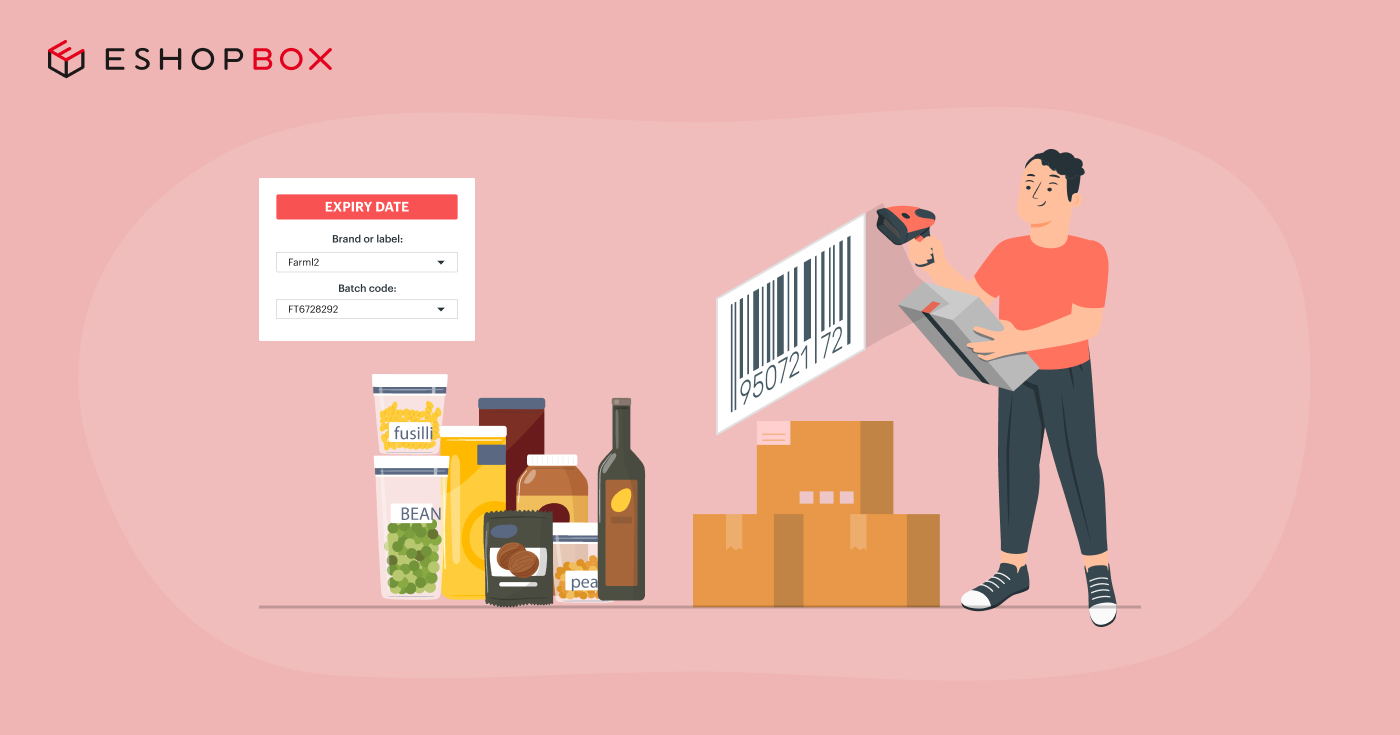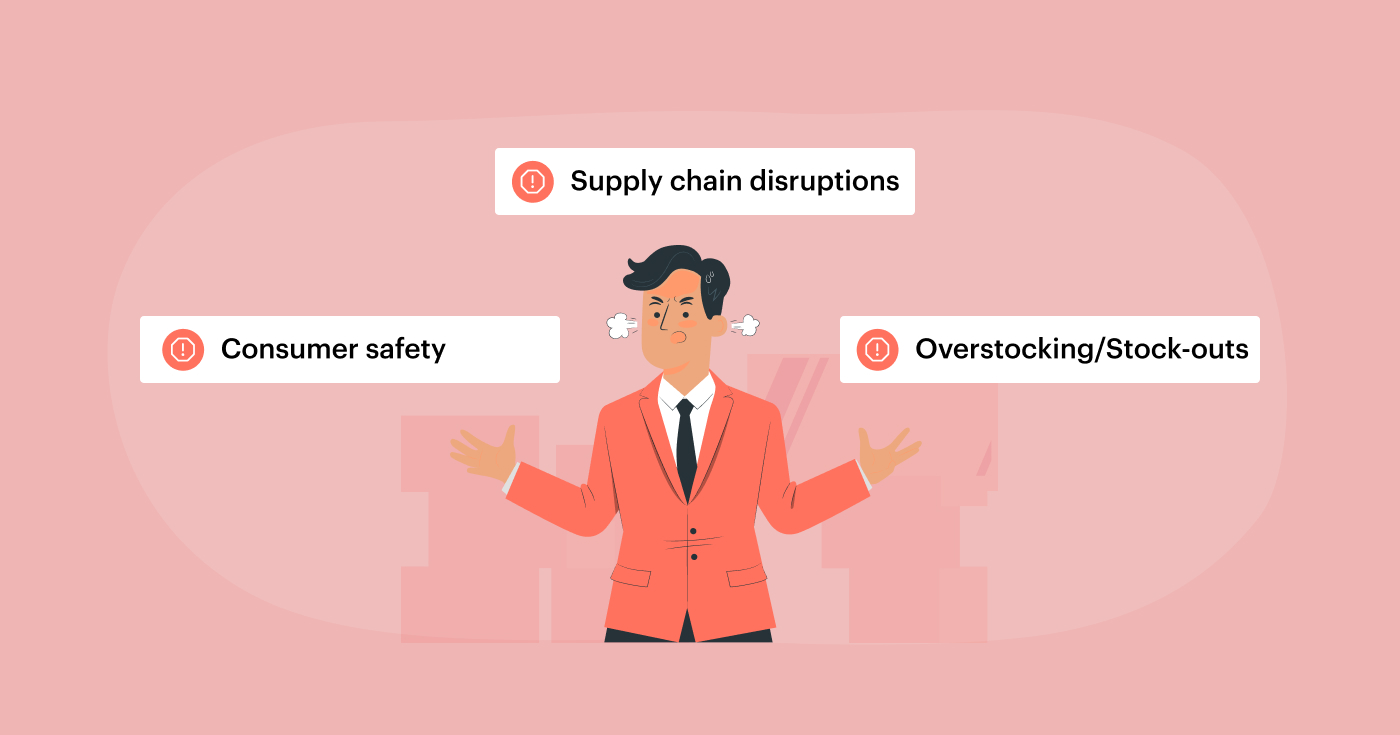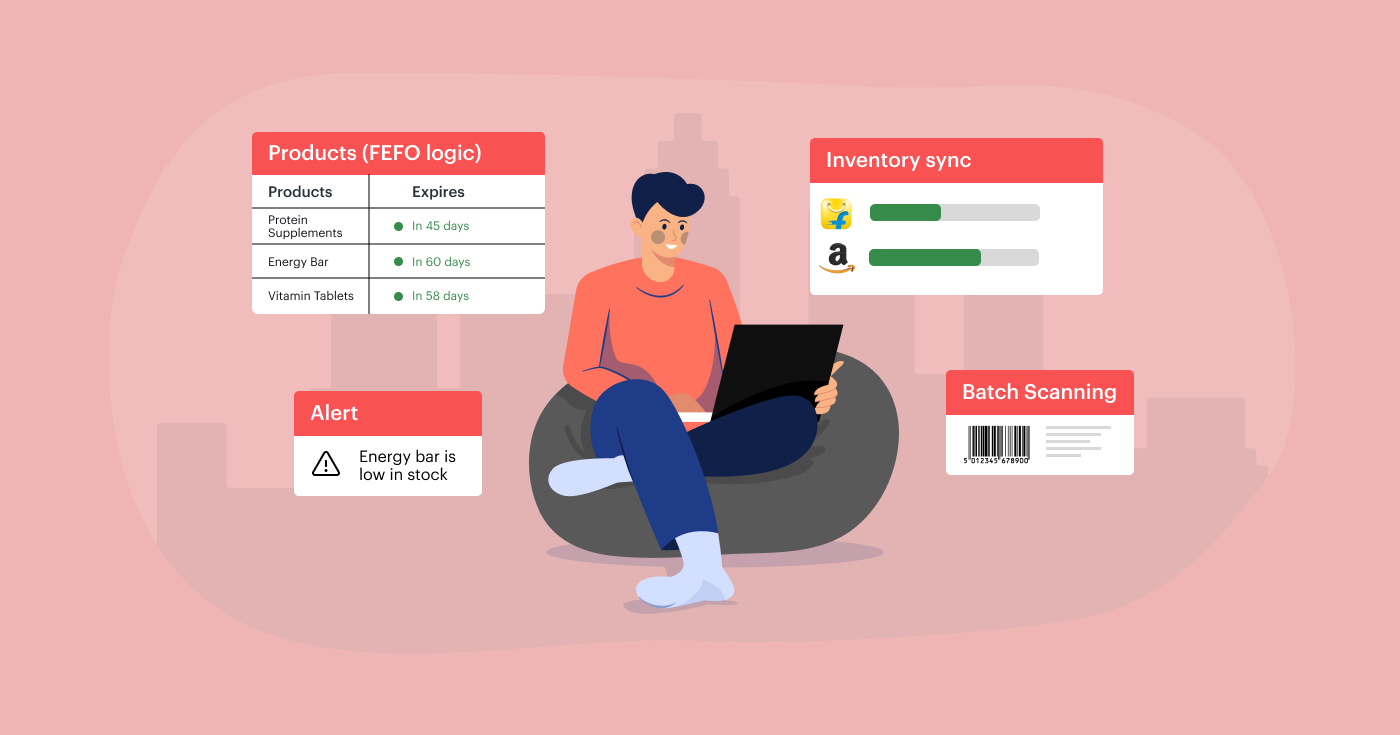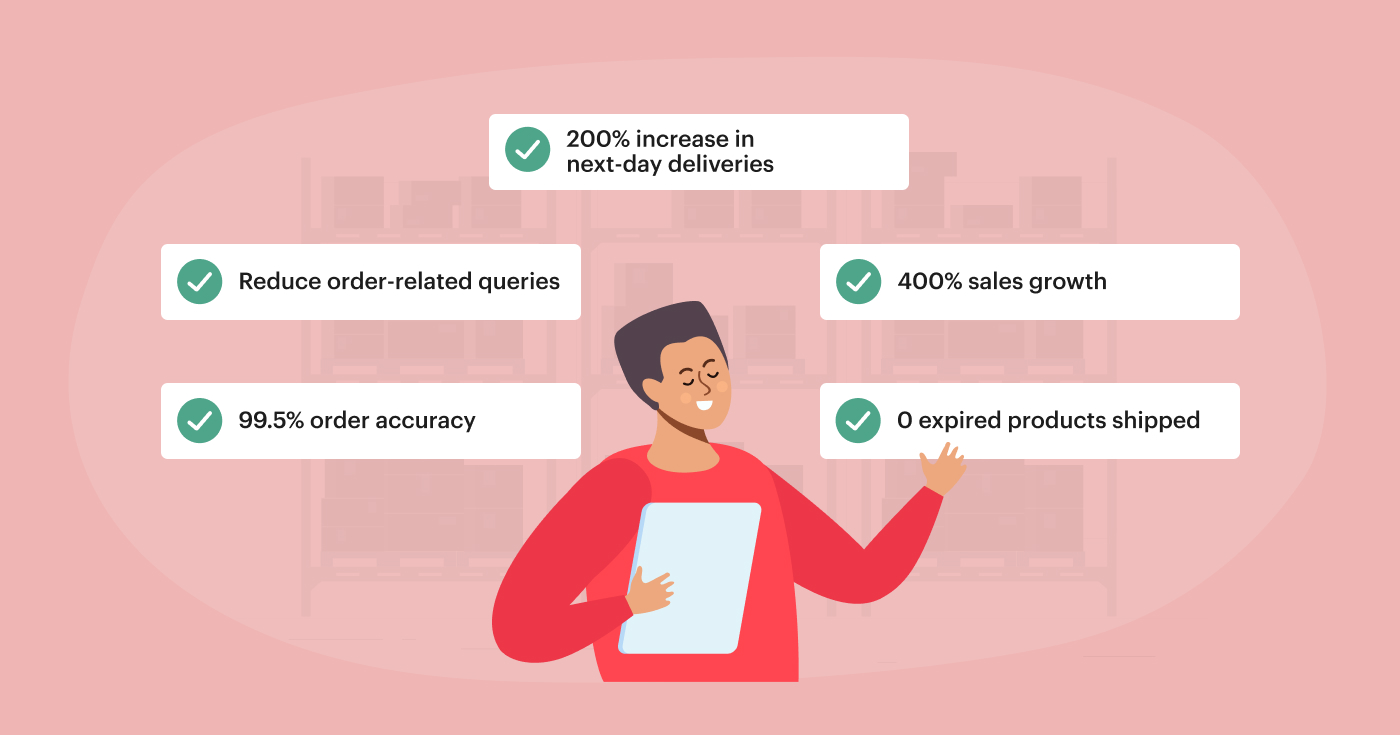
Get the latest from
Eshopbox

Traceability in Ecommerce Fulfillment: How Eshopbox Powers FMCG Brands with Warehouse-Level Precision
High volumes, low margins, and tight timelines define the Fast-Moving Consumer Goods (FMCG) industry. Products are often perishable or regulated, requiring rapid movement through the supply chain to maintain their viability. At the same time, customers expect these goods to be fresh, safe, and delivered on time, raising the stakes for operational precision.
In such a dynamic environment, traceability in ecommerce is no longer optional. It's critical for both compliance and customer trust.
According to a report by the Food and Agriculture Organization (FAO), nearly 13.2% of food is lost before reaching retail shelves—largely due to stock mismanagement, missed expiry dates, and distribution inefficiencies. Without end-to-end traceability, FMCG brands run the risk of shipping outdated products, failing recalls, and damaging their brand reputation.
Let’s explore why traceability is essential for FMCG operations—and how Eshopbox is helping brands stay ahead of the curve.
Why real-time traceability is critical in FMCG logistics?
Traceability extends far beyond compliance. It directly impacts inventory health, fulfilment speed, and customer satisfaction. Here are the key challenges that make it a strategic necessity:

1. Supply chain disruptions
FMCG supply chains must be agile. A single delayed shipment of perishable goods can result in empty shelves, spoilage, and lost sales. The inability to anticipate or respond to disruptions quickly only makes the problem worse. With strong traceability, brands gain real-time visibility into shipments and inventory, enabling proactive decision-making and supplier coordination.
2. Lost sales from overstocking or stock-outs
Poor inventory visibility leads to overstocking products that expire before they're sold, or running out of high-demand items. Both result in lost revenue. Traceability in ecommerce enables better stock rotation and allocation, ensuring the right quantity is available at the right place and time.
3. Compliance and consumer safety
Food safety regulations require FMCG brands to track product origin, batch details, and expiry dates. In the event of a contamination, brands must be able to identify and isolate affected batches immediately. Traceability systems streamline audits, support rapid recalls, and reduce the risk of non-compliance—all while preserving consumer trust.
How does Eshopbox empower FMCG brands with traceability?
Eshopbox offers integrated ecommerce fulfillment services and inventory solutions tailored to the complexities of FMCG. From batch tracking to expiry date monitoring, our platform helps brands streamline operations, reduce waste, and improve overall fulfilment efficiency.
Here’s how:

1. Intelligent batch fulfilment to minimise waste
Eshopbox automates stock rotation using FIFO, FEFO, or LIFO logic. This ensures products with the shortest shelf life are prioritised for dispatch. For example, when managing protein bars or nutritional supplements, our system ensures last week's stock moves before today's—helping brands maintain freshness and minimize expiry-related losses.
2. Barcode-based batch tracking for instant recall
Each product is assigned a unique batch barcode, enabling brands to trace items throughout the supply chain. In the event of a recall, brands can quickly identify, locate, and remove affected items, without disrupting the whole inventory. This ensures faster resolution, lower costs, and preserved brand integrity.
3. Smart inventory allocation for faster deliveries
With Eshopbox’s demand-driven inventory allocation, you can place near-expiry stock closer to high-demand zones. This ensures fast-moving goods are fulfilled from the nearest warehouse, improving delivery timelines and reducing waste.
For example, if your snack products perform well in Mumbai, our system ensures the freshest batches are available locally, improving both fulfilment efficiency and product freshness.
4. Real-time inventory sync to avoid stockouts
Eshopbox synchronizes your inventory in real-time across all sales channels—Amazon, Flipkart, brand websites, and more. When the last unit of a product sells on one platform, this information is instantly reflected across all others marketplaces via unified dashboard. This synchronization prevents overselling, enhances order accuracy, and improves customer experience by eliminating stockouts.
5. Batch-level return management for quality control
Each returned item is traced back to its original batch, allowing brands to assess its condition and determine resell eligibility. Products nearing expiry or flagged for quality issues can be easily removed, minimising the risk of reselling.
6. Actionable batch reports to drive decisions
Our dashboard provides clear visibility into batch-level inventory movement, helping brands identify slow-moving stock, anticipate expiry risks, and plan replenishments or promotions accordingly. This data-backed approach enables better forecasting and reduced waste.
How FMCG brands are scaling with Eshopbox?

Farmley, a premium dry fruit brand, encountered significant operational roadblocks as it expanded across India—frequent stockouts, overstocking, and lost revenue due to poor batch visibility and expiry tracking. Custom packaging was limited, tracking was inconsistent, and high WISMO (Where Is My Order) calls reflected customer dissatisfaction.
Eshopbox helped Farmley centralise inventory, implement FEFO-based fulfilment, and gain real-time insights into stock and returns through advanced warehouse fulfillment solutions. The results were transformational:
- 400% growth in sales
- 200% increase in next-day deliveries
- 99.5% order accuracy
- 90+ hours/month saved through reduced order-related queries
With Eshopbox, Farmley was able to eliminate expired inventory, reduce costs, and consistently deliver a superior customer experience.
Key takeaways
- Traceability in ecommerce is essential in FMCG due to short product shelf lives, strict compliance requirements, and high customer expectations.
- Without effective tracking, brands risk product spoilage, customer dissatisfaction, and regulatory penalties.
- Eshopbox equips FMCG brands with tools for real-time inventory visibility, expiry management, and batch-level insights—powered by warehouse fulfillment solutions and ecommerce fulfillment services.
- Brands like Farmley have transformed their operations with Eshopbox—scaling faster, reducing waste, and delivering fresher products, every time.
In conclusion, traceability isn't just a technical requirement—it's a strategic imperative for FMCG brands looking to thrive in today's competitive landscape. By implementing robust traceability systems, you can reduce waste, enhance compliance, and deliver consistently fresh products to your customers.
Ready to transform your supply chain operations? Partner with Eshopbox to build a smarter, faster, and more resilient FMCG business that turns traceability into a genuine competitive advantage.
Connect with our fulfilment expert today.
Talk to salesRelated Articles
2026 fulfilment: Why ecommerce brands can’t operate with 2020 logistics anymore
Top 10 popular D2C apparel brands in India in 2026
The 2026 ultimate guide to D2C fulfilment in India













